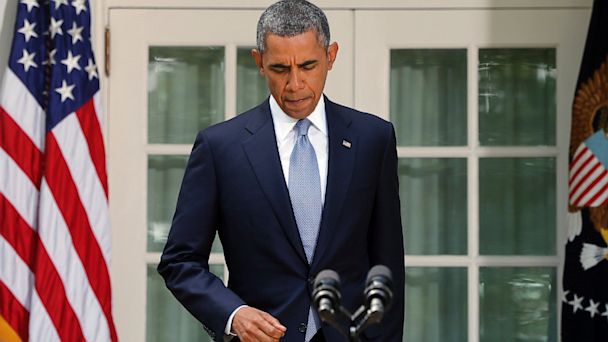The President and Syria: Actions Speak Louder Than Words

Charles Dharapak/AP Photo
ANALYSIS
The vast majority of the United States opposes intervention in Syria. The opposition is consistent across partisan segments: Democrats, Republicans and independents all are against a military strike on Syria.
And this is true even though 80 percent of the public knows that chemical weapons were used in Syria. So it is not a lack of information on that front that is behind the opposition.
As President Obama gets prepared to deliver an address to the nation to try to "sell" the idea of intervening in Syria, the question becomes, can he move public opinion in favor of intervention. Past history shows it will be extremely hard to do, if not impossible.
White House communications folks, speechwriters and presidential advisers love to put tremendous stock in the ability of presidents to move public opinion with "big" speeches. They love to raise the stakes and try to convince the media that these speeches are integral to leading the public on an issue.
But data show little impact on the public's views of policies or presidents from these addresses.
I have written before that if you take a look at polling data surrounding State of the Union addresses in the past 50 years, it shows little to no impact on views of the public. For the past seven presidents, where decent polling data is available, none was able to move the public in any real way.
Even looking at the speeches of the "Great Communicator" show that President Reagan was unable to seriously alter public opinion through "big" speeches.
Specifically, recent White House addresses that tried to move the country in favor of a war or military intervention have been universally unsuccessful. Once the country is negative on our using the military to accomplish a policy goal, the minds of the public are very difficult to change.
This is true for President Johnson's speeches on Vietnam, President Clinton's address on Bosnia and President George W. Bush's speeches on Iraq. All were unable to change the trajectory of the public on these conflicts over time. Let me say that very clearly. No modern president with a speech has been able to alter public opinion significantly concerning military action.
Will President Obama be able to go against history and move Americans to support Syrian intervention? It is remotely possible, but highly unlikely.
First, as mentioned, modern history shows presidents have met with very little success in moving the country to support an unpopular cause.
Second, after thousands of lives have been lost and more than a trillion dollars was spent in spent in the past 10 years in Iraq and Afghanistan, the country has war- and crisis-fatigue. We are tired and exhausted from wars that had very little benefit to our country, or to the world in general.
Third, trust in the government's ability to tell us the truth and do a job effectively is at an all-time low. As happens in our own personal relationships, once trust has been broken, it is nearly impossible to convince someone that things are different through words alone.
It takes a series of actions that rebuild trust before we will go along with the words of a person, or even a president.
Maybe the White House's goal in this isn't to change the minds of millions of Americans, but rather to change the minds of 535 members of Congress in the Senate and the House, so they will pass the president's resolution approving military engagement in Syria. That may be doable, but still very hard.
The Congress, many of whom face re-election and have heard the overwhelming voices of citizens opposed to Syria involvement, is not likely to be swayed by the president's address.
I would suggest the president take a moment, understand that maybe the country knows best at this time, and try again and work out a negotiated settlement. It is never good politics or policy to start from a place that a majority of the country is wrong.
For me, I would rather trust the combined wisdom of 300 million Americans rather than a few folks in Washington.
Ignore the communications folks. This isn't a marketing problem. It is a substantive policy problem and it is about rebuilding trust through actions and not words.
When people stop going to a restaurant because they don't like the food or trust that is healthy, changing the color of the menus, altering the decor and purchasing more advertising isn't going to help. Time to address a more fundamental problem.
There you have it.